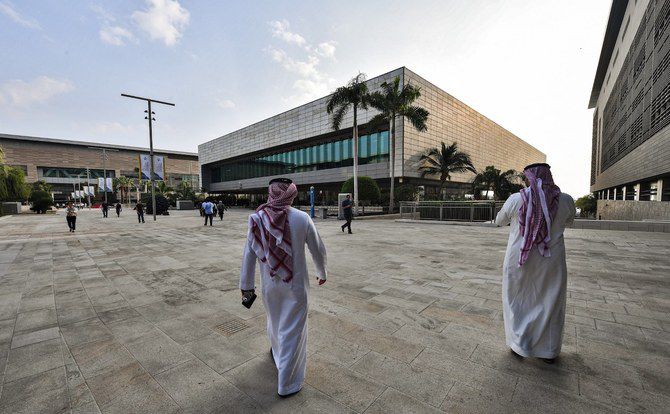RIYADH: What extraordinary feats has Saudi Arabia accomplished to see itself ranked ahead of China, Germany and the United Kingdom in a global measure of economic competitiveness?
Marking its 8th anniversary, Vision 2030 has achieved several remarkable milestones and made steady progress since its launch by Crown Prince Mohammed bin Salman, revealing a transformative journey that continues to reshape the future of the Kingdom.
“It is an ambitious, yet achievable blueprint that expresses our long-term goals and expectations and reflects our country’s strengths and capabilities,” the crown prince said at the launch of Vision 2030 in 2016.
“All success begins with a vision and successful visions are built on solid pillars.”
According to a competitiveness report from the Switzerland-based International Institute for Management Development, the Kingdom ranks 3rd among G20 nations on this criterion, and 17th among all countries.
What are the achievements of the Kingdom that allowed it to obtain this place of choice among competitive countries?
According to the latest Vision 2030 annual report card, Saudi Arabia has made significant progress in four competitiveness factors assessed in the report.
It rose to 6th place in economic performance, climbed to 11th place in government efficiency and up to 13th place in business efficiency, while remaining 34th in the classification of infrastructures.
Among other performances, the Kingdom is 3rd among G20 countries, 5th globally for the financial markets index and 2nd for the cybersecurity indicator.
PIF: an investment powerhouse
As the main driver of economic diversification and revitalization of vital sectors, the Public Investment Fund (PIF) has leading investment portfolios.
These are designed to direct investments towards diversifying the economy, developing infrastructure, stimulating innovation and strengthening global economic ties.
The fund has expanded its portfolio to encompass promising sectors with significant growth potential, ranging from tourism and entertainment to fintech, gaming and sports.
Its investment skills have grown rapidly, positioning PIF as a global leader in exploiting economic opportunities domestically and internationally.

Transport infrastructure
The transport sector is essential for sustainable development and plays a key role in improving safety by improving roads and implementing advanced transport systems.
These efforts contribute to reducing the number of road accidents, injuries and deaths, creating a safer environment and improving the quality of life in general, which is part of the objectives of the national transport strategy, in the framework of Vision 2030.
The report presents road safety indicators and highlights that the road fatality rate increased from 28.8 per 100,000 people in 2016 to 13.3 in 2022.
It also says the injury rate fell to 71.67 injuries per 100,000 people in 2022.
A competitive financial market
Saudi Arabia’s financial market has seen significant growth and activity since the announcement of Vision 2030, demonstrating the strength and robustness of the Kingdom’s financial sector.
The Kingdom was ranked 5th globally – and 3rd among G20 countries – in the financial markets index, according to the World Competitiveness Center’s International Competitiveness Yearbook 2023.
The number of fintech entities in 2023 reached 216, far exceeding the target of 150. This indicates rapid growth and development in the fintech sector.
In addition, the number of listings on the financial market in 2023 reached 43, exceeding the target of 24, indicating increased interest from companies in listing on the market.
This growth is a positive sign of investor confidence and market attractiveness for public offerings, as the total number of listed companies is now 310, indicating a diverse and extensive market.
The high percentage of micro and small companies listed on the market (76.7%, compared to the target of 44%) shows that even small companies are finding opportunities to list, according to the report.
The story of Saudi Arabia’s transformation has many actors, including the government, Saudi citizens, the private sector and international partners.
By 2023, their combined efforts have made Saudi Arabia a great place to live, work and travel.
All are writing the next chapter in 2024 – a year of unparalleled opportunity for the Kingdom and all who want to be part of history.
This text is the translation of an article published on Arabnews.com








